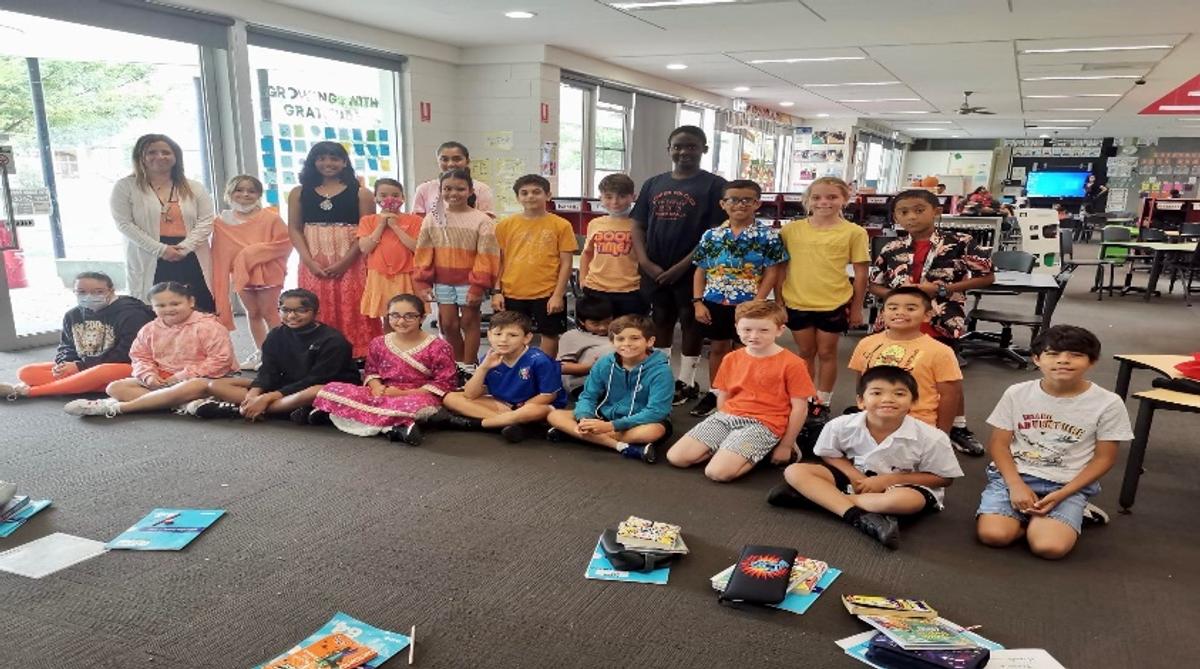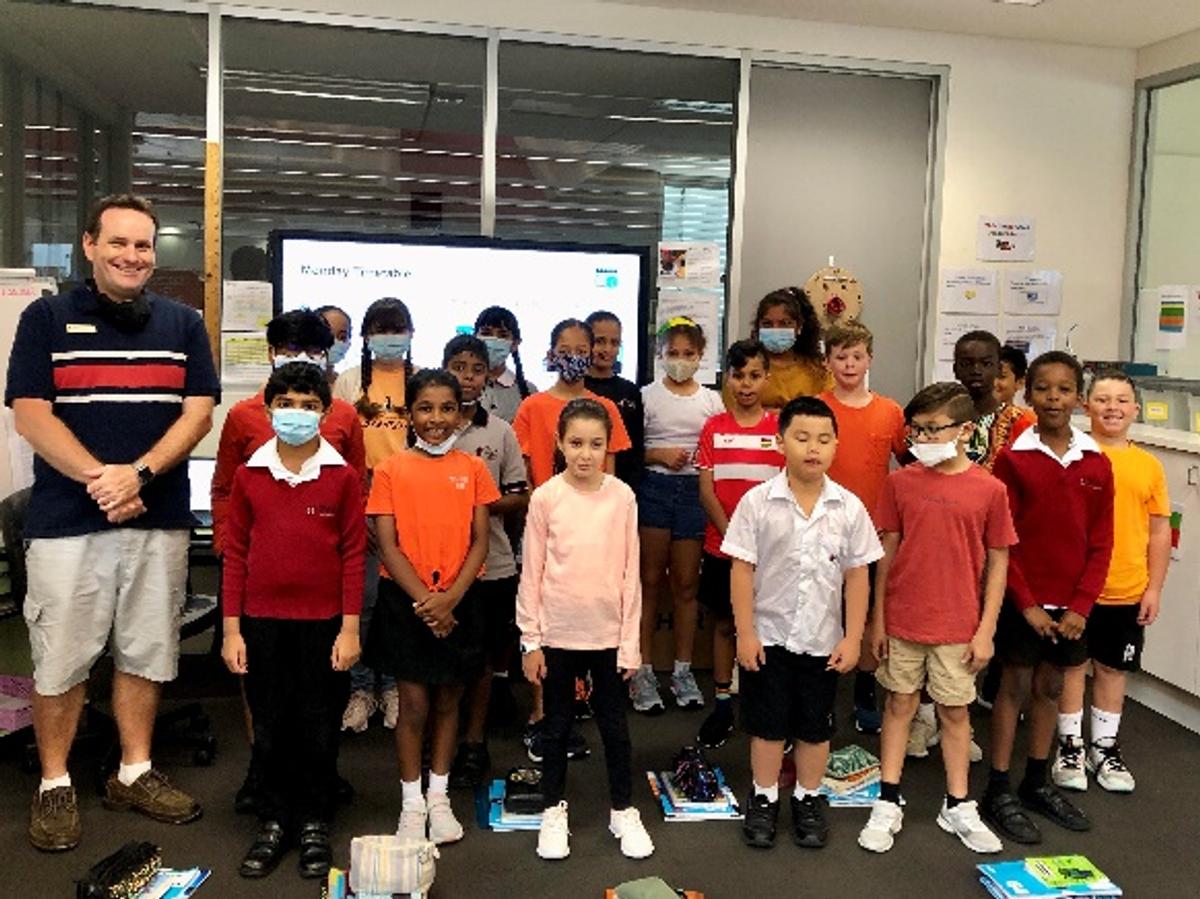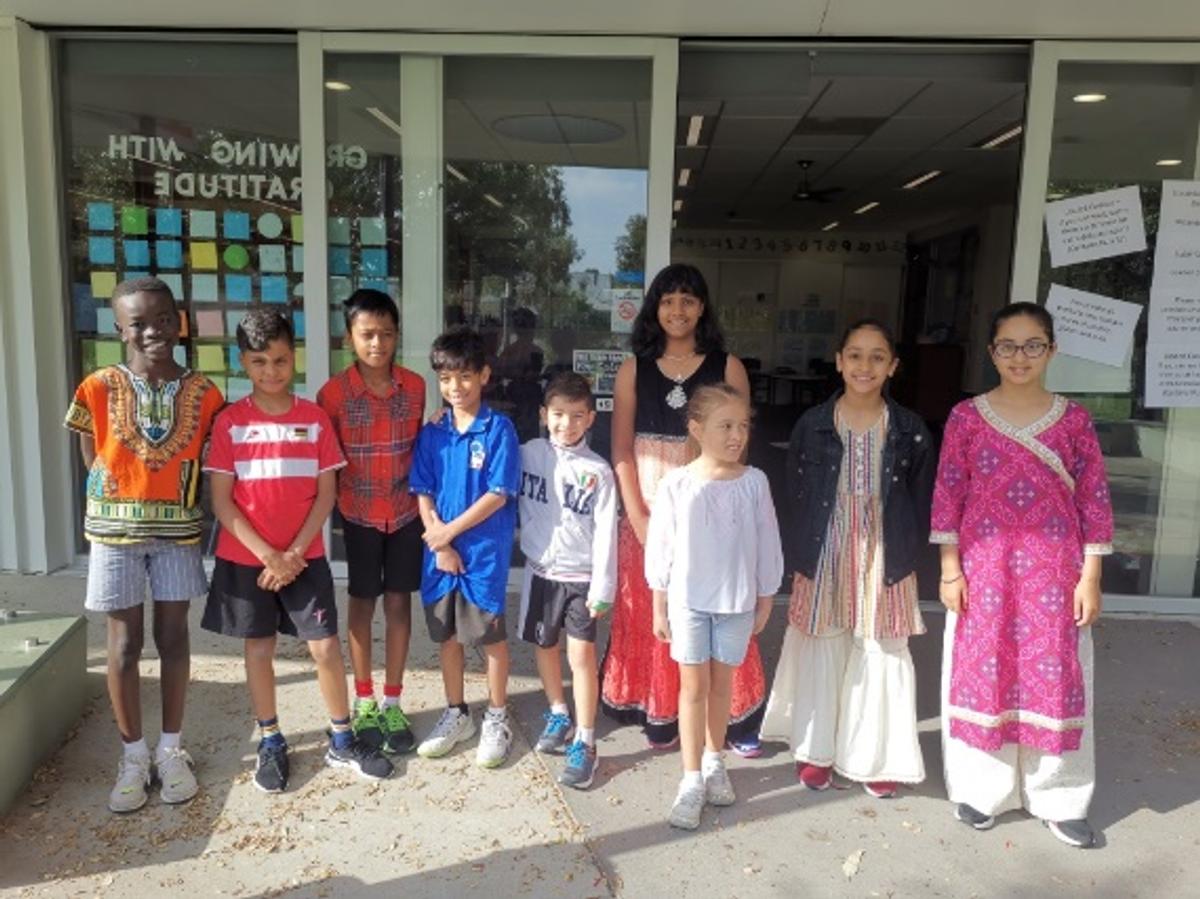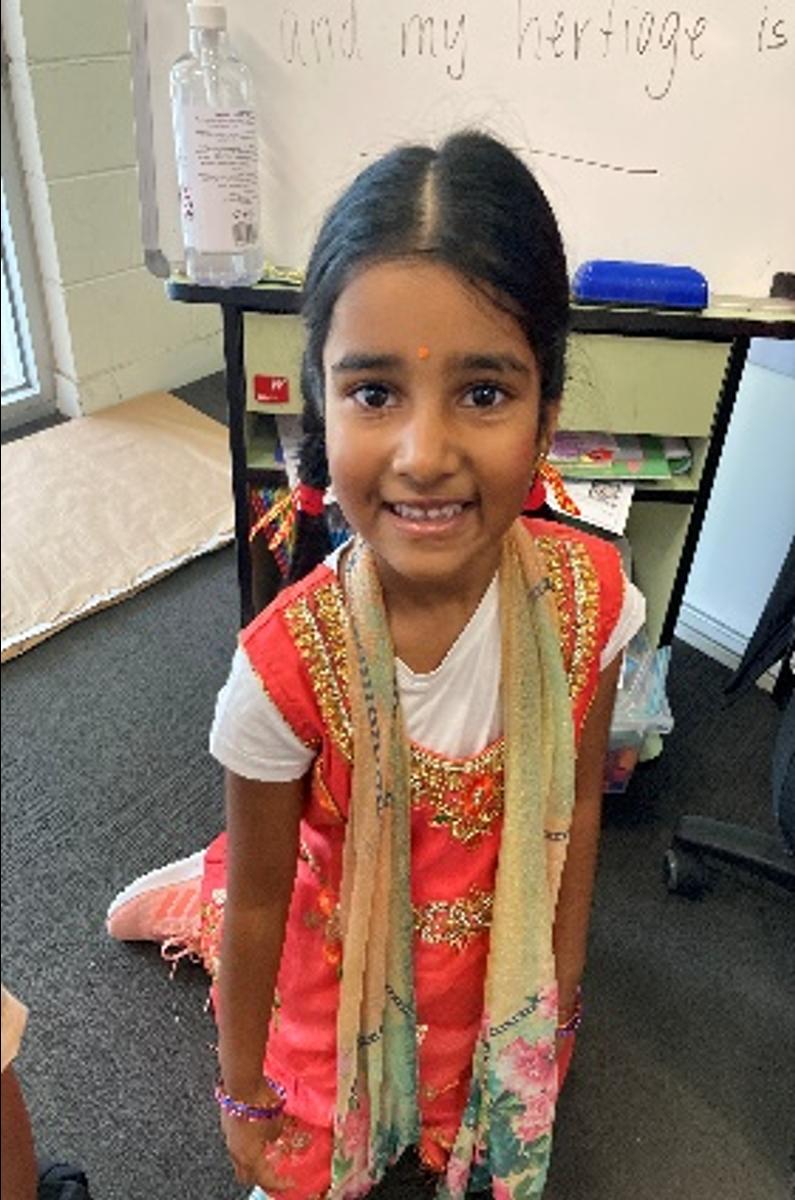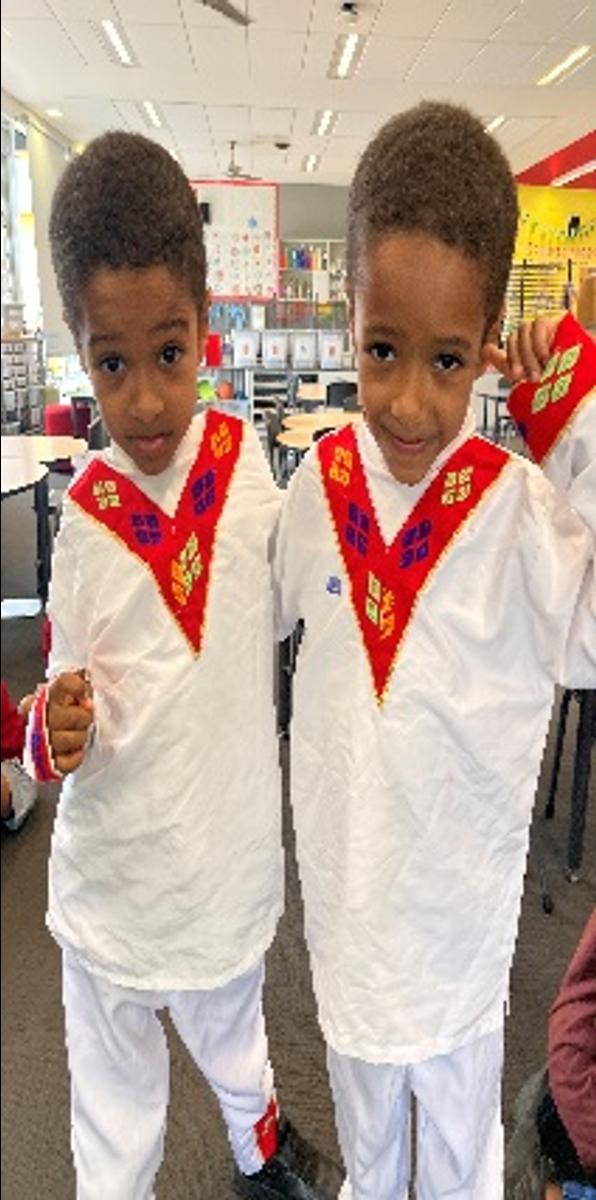Wellbeing
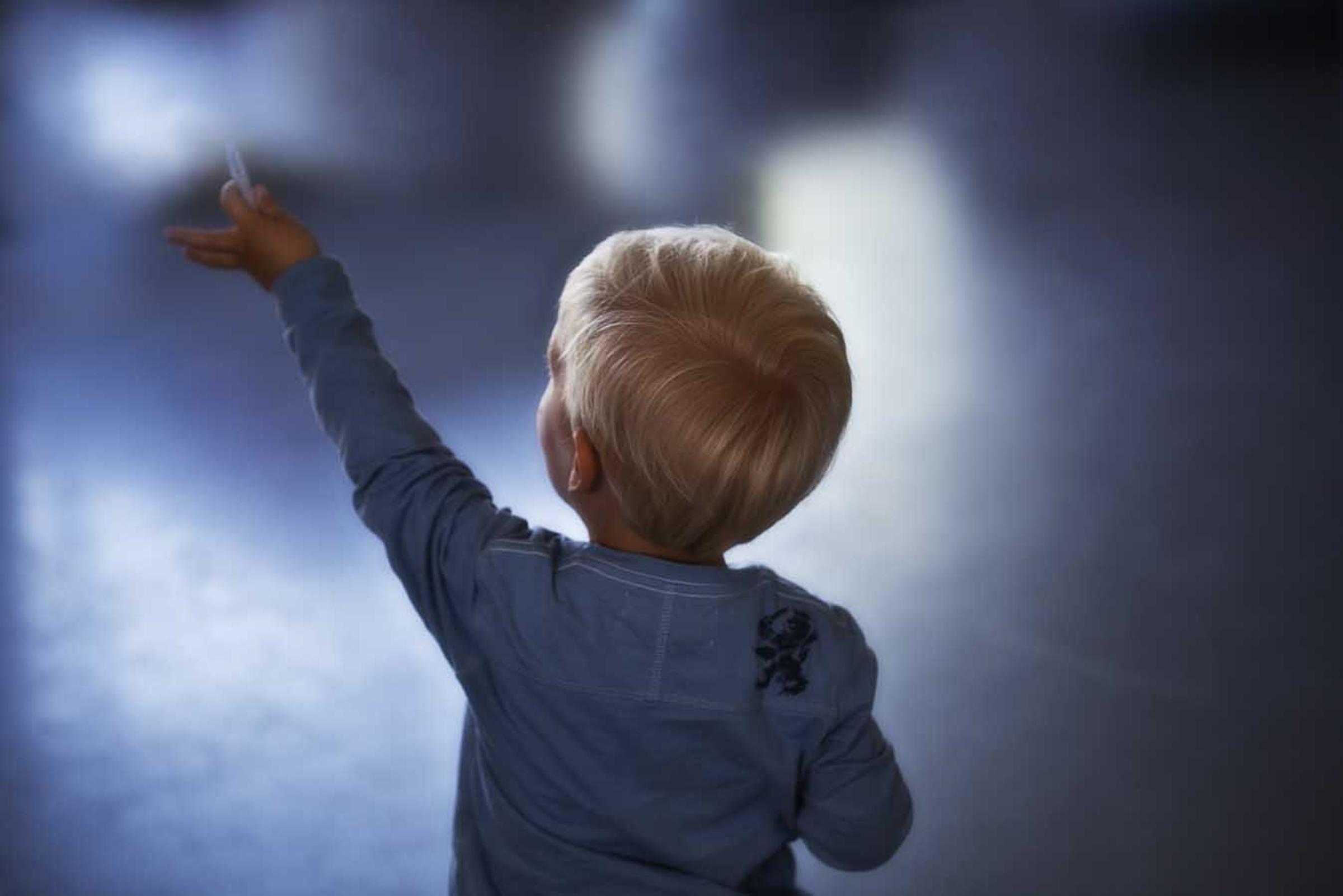
Twilight Market and Art show
We are looking forward to celebrating the SFS community Twilight market and Art show this year on Thursday 3rd November. Save the date and mark it in your diary.
We are looking for stall holders. If you have a small business that you would like to promote or you know if anyone who has a small business that they would like to promote please email me rlenko@sfslynbrook.catholic.edu.au for an expression of interest form.
We are looking for crafts, home made goods, gifts, home ware, jewellery, baked goods, anything really that you might find at a market.
Harmony day
This week is Harmony Week and on Monday 21st March we celebrated Harmony Day. The children were asked to come dressed in clothes to reflect their cultural background or the colour orange which is the colour we use to raise awareness of cultural diversity.
The teachers also shared lunch with each other this week to share food from their cultural background.
The Resilience Project
On Wednesday night we had the Resilience Project webinar with Martin Heppell. For those parents that could not attend but would like to hear the recording, here is the link to the recording, which you can distribute to anyone who couldn’t make it:
Topic: The Resilience Project presents, 'Discovering Resilience' with Martin Heppell
Date: Mar 23, 2022 06:19 PM Canberra, Melbourne, Sydney
Meeting Recording:
Please note, this link will expire at midnight on 8th April.
The key principles of the Resilience Project are Gratitude, Empathy, Mindfulness and Emotional literacy. Having a GEM chat at home with your children will help to develop these principles. Here are some questions to ask your children each day.
- What were three things that went well for you today?
- Who is someone you feel really grateful for today? Tell us why.
- What is it about our home that makes it our home/special family place?
- What is something you are looking forward to tomorrow?
This week’s article taken from the Parenting ideas schools website is about Resilience and is written by leading parenting expert Michael Grosse.
Growing up is not straight-forward The pandemic has delivered change and upheaval to families on an enormous scale. However upheaval is not new for some children, particularly those who’ve experienced illness, a loss of a loved one or who’ve moved home and changed schools. Each change requires acceptance, adjustment and an attitude realignment to help them fit the new circumstances. Every change is an opportunity for a child to grow and develop, if they are supported, and they’re not overwhelmed by the experience.
The twists and turns of development A child’s pathway to adulthood, and the accompanying journey of their parents, is generally viewed as linear. Growing up is seen as a straightforward march from infancy, early childhood, childhood, adolescence, post-adolescence to adulthood. If COVID has taught us anything it’s that a child’s journey is full of twists and turns.
While your child has a developmental clock that keeps ticking over, it’s their experiences that determine their maturity and their ability to reach fully-fledged adulthood with the resilience, grit and adaptability needed to thrive. These experiences that develop maturity and coping capacities fit into two broad areas – challenging experiences and positive experiences.
Challenging Experiences
The challenging experiences that a child encounters enable them to build their coping capacities and develop their emotional resources that contribute to their maturity. These challenges include:
Conflict
Disagreements, arguments and rivalry is part of growing up. Whether it’s a dispute with siblings or a fallout with a friend, negotiating conflict is a developmental task.
Rejection
Rejection by a friend or group is hurtful and feels horrible, but it also builds a level of social smarts and judgement necessary for navigating relationships in later life.
Loss
This takes many forms including a friend moving away, the death of a pet or the passing of a family member. Loss is the cause of sadness, grief and heartbreak that can feel overwhelming. However, with time and support kids learn to cope and get on with their lives.
Disappointment
Losing a game, not being picked for a team, not receiving a gift they wanted are unpleasant but character-building experiences that help kids develop perhaps the most treasured resilience capability of them all – acceptance.
Failure
Mistakes are seen in three ways. They are activities to be avoided, signs of failure, or opportunities for further learning. Resilient learners know that mistakes, even initial failures, are part of every learning process so the risk of failure doesn’t hold them back. Children and young people grow from these experiences as coping and recovery generally build character, confidence and resilience.
Positive experiences
Though children and young people will inevitably experience challenging experiences, positive experiences help to balance the experience ledger by building a child’s identity, wellbeing and emotional collateral.
Love
Knowing that a child is loved and loveable is at the core of their self-worth. Self-esteem and identity built in adolescence needs a solid foundation of self-worth.
Friendship
Making and keeping friends is an essential life task linked to many aspects of happiness and wellbeing.
Contribution
The ability to belong to groups through contribution fulfils a basic need. It allows children to experience real gratitude and feel needed, which builds self-esteem.
Excitement
Fun, joy, excitement! Any activity that shifts a child’s emotion from unpleasant, low energy to pleasant and high energy is a good thing.
Play
Involvement in enjoyable activities such as hobbies, interests, sports, music, games, creative and performance arts are central to healthy wellbeing. Activities that are fun, freely chosen and create flow (the ability to lose track of time) fit the criteria of play.
In closing
A child’s age and related milestones is a recognised marker of their development. However, their life experiences, as much as the number of birthdays they’ve had, contribute to their maturity, resilience and readiness for the wider world.
Parent Teacher Interviews
I am available for parent teacher interviews if you would like to discuss the wellbeing of your child. If I work with your child in a social skill’s group or Seasons for growth group you might want to make a time to speak with me about your child’s progress and social and emotional learning. You can add a time on the Online interviews with the other teachers.
Positive Quote of the day
Rachel Lenko
Student Wellbeing Leader

